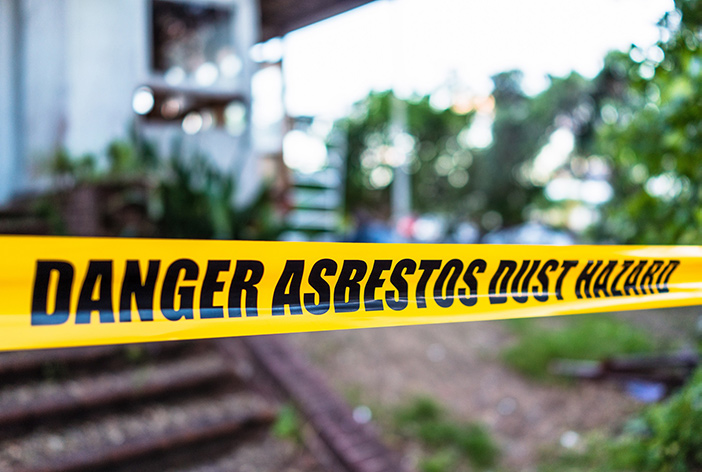Asbestos Industry Recruitment Is At Crisis Point And Needs A Workable Plan – Now
 Recruitment in the asbestos industry is at crisis point and while FMs may not currently feel a direct impact, if suppliers can’t get boots on the ground, service will be slower and timeframes could be missed. It would be wise for FMs to review their continuity plans to include several suppliers, working collectively, so back up is there if it’s ever needed says Aaron Dodd, director at the healthy, safety and environmental consultancy OHS.
Recruitment in the asbestos industry is at crisis point and while FMs may not currently feel a direct impact, if suppliers can’t get boots on the ground, service will be slower and timeframes could be missed. It would be wise for FMs to review their continuity plans to include several suppliers, working collectively, so back up is there if it’s ever needed says Aaron Dodd, director at the healthy, safety and environmental consultancy OHS.
Over the last 12 years, Australia and New Zealand have worked hard at attracting expertise from the UK to solve their labour shortages in the construction industry. A quick look at Twitter this week showed businesses over there are still recruiting and with the promise of a warmer climate and better lifestyle, it’s not hard to see why UK asbestos and construction workers have jumped at the chance to move their families abroad.
However, what was the labour shortages of Australasia are now those of the UK and in the asbestos industry, recruitment of consultancy experts is at crisis point.
It’s not a new problem, but it’s getting worse. With few trainees coming up the ranks, businesses are simply recruiting from each other and paying large amounts in recruitment fees.
FMs may not see the direct impact immediately – no business is going to admit they’re struggling to recruit and having to be selective about the work they can take on – but eventually, they could see slower service and, potentially, missed timeframes.
The ability to use a wider network would be beneficial to FMs in the long term. Planning ahead, FMs and particularly those in larger organisations and in long-term frameworks, should consider having three or four suppliers that can work collectively so there are no gaps in service.
In the asbestos industry, the problem isn’t so acute on the removal side as untrained operatives can be brought in following a one-week training course. However, training on the consultancy side can take six to 12 months and this is where the problem lies. The industry needs to strategise with a collective response, starting with a call for the Government Select Committee to deal with the issue.
In the short term, we believe asbestos consultancies should be offering attractive packages for employees, with improved working terms and conditions including a better work/life balance, flexible working hours and perks such as health plans. It’s important to attract females to the industry too, as the industry is currently fishing from a pool that comprises around 97% of male candidates. The Government could also look at temporarily lifting immigration restrictions and fast-tracking visa applications.
 Over the medium term, the asbestos industry needs to take collective responsibility for investing in the future by taking on trainees and we are making a commitment to this. While they won’t bring immediate profit for a business, it will benefit quickly once they’re trained – and it won’t cost much more than recruitment fees!
Over the medium term, the asbestos industry needs to take collective responsibility for investing in the future by taking on trainees and we are making a commitment to this. While they won’t bring immediate profit for a business, it will benefit quickly once they’re trained – and it won’t cost much more than recruitment fees!
Finally, in the longer term, changing HSE guidance to make two person teams mandatory for surveying, will mean that beginners can be trained on the job to the high level of expertise that’s required for asbestos consultancy work and the good of the industry as a whole.
The skills gap in the asbestos industry is a long-term problem requiring a collective, long-term solution. Yet, we are aware that the skills and labour shortage is a problem that spreads far wider. According to the latest Office of National Statistics data, in construction, the number of UK job vacancies ratio per 100 employed jobs is the highest it's ever been since 2001.
The pandemic has led many people to reconsider their priorities and leave the sector, with attitudes to work changing during lockdown; employees working from home have enjoyed a newfound work/life balance and aren’t so driven by overtime. Add to this an ageing workforce, then the need for companies to train skilled workers becomes even more urgent.
An industry wide problem needs and an industry wide solution, and only by understanding the issues our partners and suppliers are facing, can we tackle this together.
























































